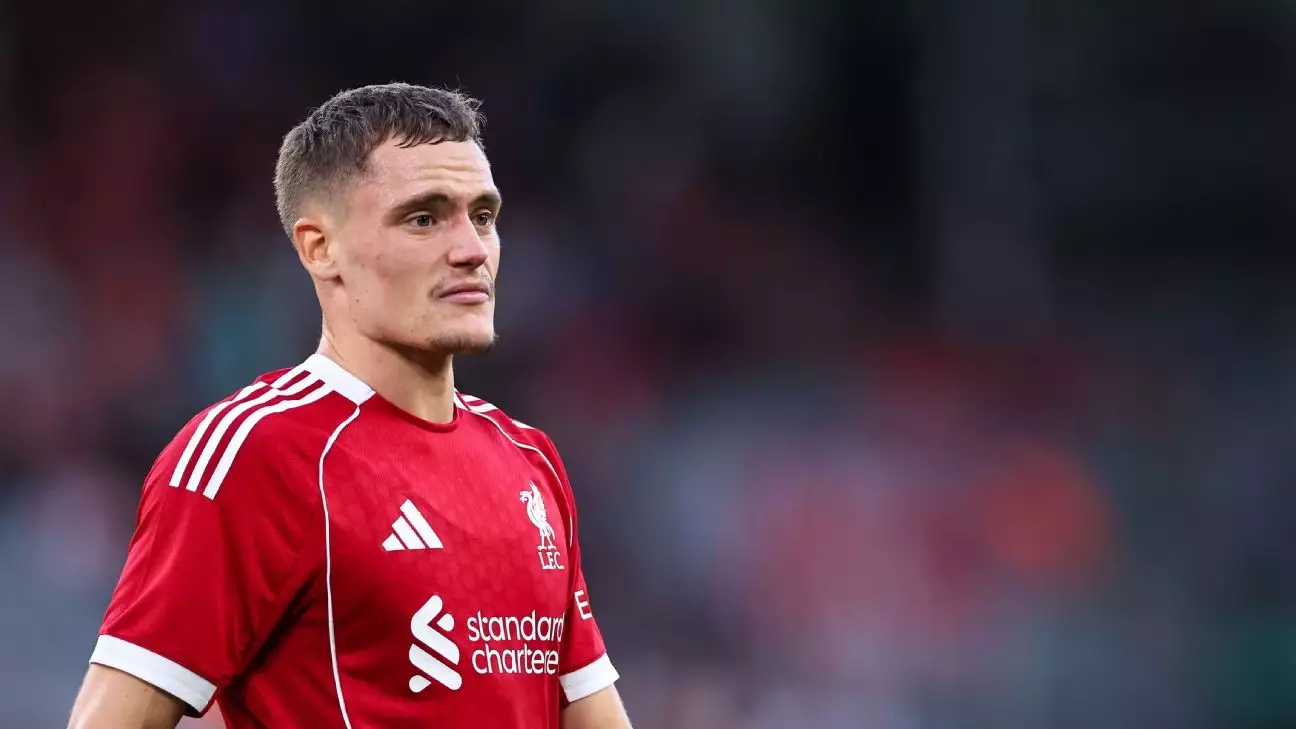Liverpool’s recent pre-season performances reveal a pivotal shift in the club’s approach to rebuilding resilience amidst significant transition. The departure of Trent Alexander-Arnold to Real Madrid marks not just a loss of a quintessential creative force from the backline but signals an urgent need for reinvention within Liverpool’s tactical framework. Under the guidance of coach Arne Slot, the team appears to be embracing this challenge with a proactive mindset centered on unleashing fresh talent and fostering innovative playmaking. This strategic pivot signals an important lesson for football clubs everywhere: setbacks can catalyze the emergence of new brilliance if navigated with foresight and adaptability.
Slot’s emphasis on Florian Wirtz’s creative potential underscores a broader philosophy – that individual talent must be harnessed in a way that transcends traditional positional roles. Wirtz’s versatility and flair introduce an element of unpredictability, forcing opponents to reconsider their defensive setups. Just as Trent’s crosses and vision once unlocked defenses from deep positions, Wirtz offers a different, yet equally dangerous, kind of ingenuity in the final third. Such adaptability not only compensates for the absence of a key player but also enriches Liverpool’s tactical depth, pushing the club toward a more dynamic style of play.
The Power of Creativity and Youth in Modern Football
The signings of young, talented players like Jeremie Frimpong, Milos Kerkez, and Hugo Ekitike reflect a deliberate shift toward cultivating a future-ready squad, prioritizing raw potential and technical versatility. Their seamless integration into pre-season shows an understanding that success lies not purely in established stars but in fostering an ecosystem where ambitious youth can flourish. For Liverpool, this means more than just filling gaps; it’s about reimagining the team’s identity to thrive in a competitive landscape that increasingly rewards innovation and flexibility.
Ekitike’s adaptability across the forward line, Gakpo’s goal-scoring prowess, and Salah’s ongoing influence serve as a reminder that experienced players remain vital, yet their impact can be amplified when complemented by rising stars eager to carve their own legacy. The team’s resilience was further demonstrated by their ability to respond to setbacks — such as conceding goals from set pieces due to defensive vulnerabilities — with renewed focus on defensive stability. This blend of youthful energy and seasoned professionalism exemplifies what modern football demands: a balance of innovation, mental toughness, and tactical fluidity.
Leadership in Uncertainty: The Cultural and Emotional Dimensions
Amidst tactical transformations, the club’s cultural fabric remains steadfast. The tribute to Diogo Jota, who tragically passed away last month, exemplifies how emotional intelligence and community spirit continue to define Liverpool’s identity. Such moments reinforce that football is more than a game; it is a collective experience rooted in resilience, shared grief, and hope. The fans’ ongoing support and their spontaneous gestures of remembrance highlight the importance of unity in overcoming adversity.
Moreover, the club’s ability to navigate logistical hiccups — like the false fire alarm which briefly delayed proceedings — underscores the importance of adaptability off the pitch as well. Every challenge becomes an opportunity to demonstrate professionalism and camaraderie, essential qualities for a team striving to rebuild itself amidst change. This cultural strength provides a foundation that supports tactical evolution, ensuring that even as players come and go, the spirit of Liverpool endures.
Redefining Success: Innovation as a Competitive Edge
Liverpool’s approach signals a shift from relying solely on traditional methods to embracing creative evolution as a competitive advantage. The investment in new signings, the focus on developing young talent, and the emphasis on adaptable tactics reflect broader trends in football — where the emphasis on innovation, versatility, and psychological resilience often determines outcomes in high-stakes competitions.
As Liverpool prepares for the upcoming fixture against Crystal Palace, their focus on fine-tuning set-piece organization and defensive robustness will be crucial. The pre-season glimpses suggest a team that is not only rebuilding but reimagining what success looks like in an era where adaptability and creative thinking can turn the tide of a game. In this flux, Liverpool’s willingness to invest in the future and accept temporary setbacks is poised to define its trajectory in the seasons to come.
In the end, Liverpool’s journey illustrates a vital truth — that true strength lies in the capacity to reinvent and innovate. Their embrace of young talent, combined with a philosophical shift towards creativity and resilience, signals a promising chapter where setbacks serve as catalysts for growth. The club’s evolution, driven by strategic foresight and a resilient cultural core, offers valuable lessons for any team seeking sustained success in an ever-changing football landscape.

